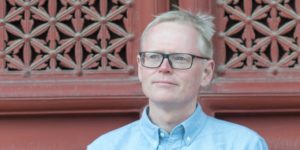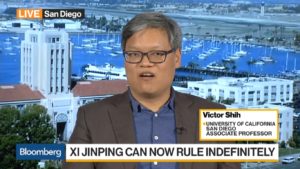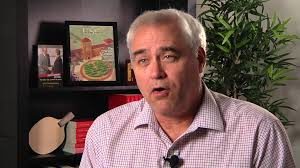
China’s communist party celebrated earlier this month its 100th anniversary. China watcher Ian Johnson explains how change and experimenting became part of the principles of the country’s leading political force. “They were always experimenting, and in the economic reforms of the ’70s they showed an ability to improvise,” he tells in Hamodia.
Hamodia:
Ian Johnson, a senior fellow at the Council on Foreign Relations with an expertise in China, posited that the CCP’s nearly 30 years as a rebel entity in China before it rose to power made its leaders more pragmatic than their Soviet counterparts. From the time of its founding until its ultimate victory in 1949, the party survived through a series of alliances during its period of quasi-exile in various parts of China.
“Dating back to the ’20s and ’30s they had to cut deals with Muslims and with warlords and farmers in order to survive,” said Mr. Johnson. “They were always experimenting; and in the economic reforms of the ’70s they showed an ability to improvise.” Deng initiated a series of economic reforms that promoted private ownership and largely introduced a capitalist system while keeping political power consolidated in the hands of the CCP. In describing his nuanced approach to what was still labeled socialism Deng famously commented, “No matter if it is a white cat or a black cat; as long as it can catch mice, it is a good cat.”
“[Deng] created a system where whatever works was called socialism and whatever didn’t was capitalism. In reality, he began to glorify becoming rich and the country steadily became more capitalist,” said Mr. Cheng.
Mr. Johnson pointed to key differences between reforms in China and those that ultimately broke the USSR.
“The Chinese did Perestroika without Glasnost,” he said, referencing the late Soviet periods — the former connoting economic and political reform and the latter government transparency and tolerance of free thinking.
“The Soviets allowed for more freedom of expression which led to an explosion of unhappiness and upheaval,” said Mr. Johnson. “The Chinese started with economic reforms like giving farmers long-term usage of their land and free markets. They were able to deliver the goods in a way the Soviets could not do. It’s important not to underestimate that most people are not disgruntled about freedom but about wanting a decent life and not wanting to wait in line for bread. A rising standard of living can usually quell 80% of political discontent.”
Ian Johnson is a speaker at the China Speakers Bureau. Do you need him at your (online) meeting or conference? Do get in touch or fill in our speakers’ request form.
Are you looking for more strategic experts at the China Speakers Bureau? Do check out this list.







































